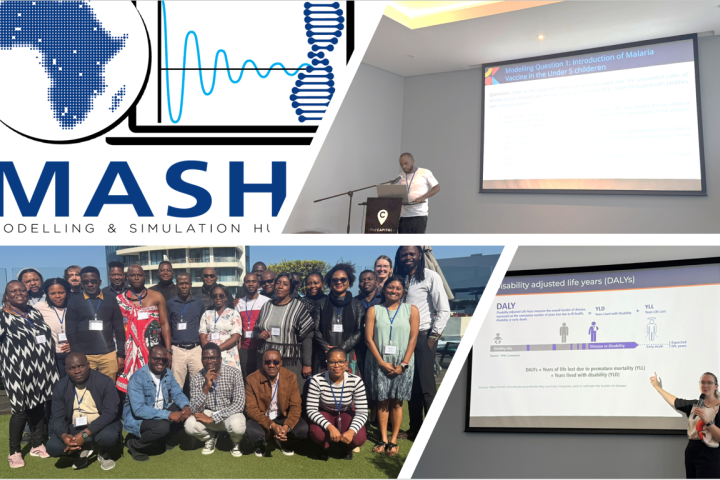RMMT Fellowship: Advancing Policy Modelling in the Second In-Person Week

RMMT Fellowship: Advancing Policy Modelling in the Second In-Person Week
The second in-person block of the Regional Malaria Modelling Translational (RMMT) Fellowship, held from 11–15 August 2025 in Durban, South Africa, marked another milestone in strengthening modelling capacity for malaria policy across sub-Saharan Africa. Hosted by the Modelling and Simulation Hub, Africa (MASHA) at the University of Cape Town, the week brought together fellows from seven African countries (Angola, Eswatini, Ghana, Mozambique, Namibia, South Africa and Zambia) to refine their capstone projects and deepen their expertise in health and economic modelling.

Over five intensive days, fellows participated in a dynamic mix of structured learning sessions, technical workshops, and peer feedback rounds. A central highlight was the capstone presentations, where each country team delivered a ten-minute presentation followed by a ten-minute discussion. These sessions challenged fellows to clearly define their policy problem, frame relevant modelling questions, specify outcomes of interest, and present scenario structures rooted in their national policy contexts.
Facilitators led advanced sessions on economic analysis, including perspectives on cost-effectiveness, budget impact, and value-for-money assessments. These sessions helped fellows align their modelling approaches with real-world policy needs, ensuring that their work remains both technically sound and strategically relevant.
Discussions also focused on translating complex model outputs into accessible, policy-relevant insights. Fellows explored techniques for crafting compelling key messages, designing effective visualisations, and engaging stakeholders with clarity and confidence.

The week reinforced the fellowship’s dual mission: to build technical modelling capacity and to empower fellows as credible voices in health and economic policy debates. By the end of the block, participants had received critical feedback to sharpen their capstone projects and gained a clearer vision of how to present actionable modelling results to policymakers.
Looking ahead, the third and final in-person block will take place in October 2025, where fellows will present their completed capstone projects to a panel of policymakers and experts. These presentations will showcase how modelling can directly inform resource allocation, intervention prioritisation, and strategic planning for malaria elimination.
